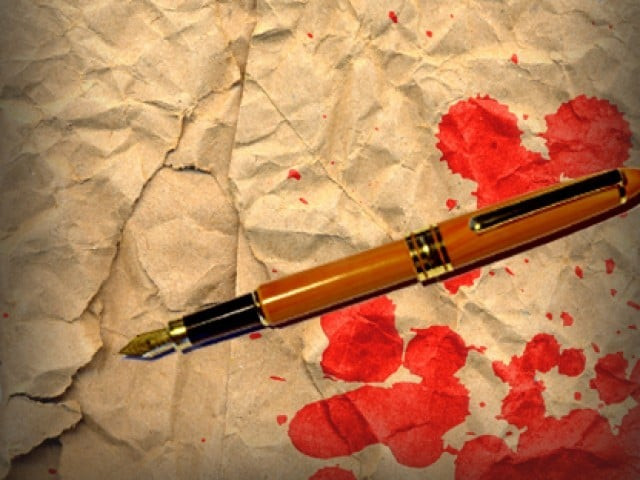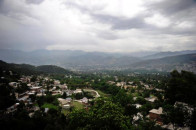‘More freedom now but new threats abound’
Seminar marks 34 years since four journalists given flogging sentences.

“Though the times have changed, and for the better, reporters are now subjected to a different kind of harassment and violence,” said Electronic Media Reporters Association (EMRA) President Tanveer Shahzad. The seminar was organised by the EMRA and held at the South Asian Free Media Association (SAFMA) auditorium.
Shahzad said with terrorism on the rise, reporters were now exposed to threats from extremist elements as well. “Where we now as reporters enjoy a greater freedom, we also face new threats and challenges,” he said.
The seminar marked 34 years since May 13, 1978, when four Pakistani journalists – Khawar Naeem Hashmi, Nasir Zaidi, Masoodullah Khan and Iqbal Hussain Jaffri were sentenced to flogging by a military court during the rule of General Ziaul Haq. Khan later won a reprieve on medical grounds while the other three were flogged. Khan and Hashmi spoke about the ordeal at the seminar. Hashmi, who then worked for the daily Musawaat and is currently the Lahore bureau chief for Geo TV, said that journalists in prison went on hunger strike for 29 days following the sentencing.
He said that the movement against Gen Ziaul Haq was led by journalists. “Thirty-four years later, I wonder if we, as journalists, have detracted from our objectives,” he said. He said students should be taught in school about how journalists had fought for freedom of expression. “They need to be told our story,” he said.
Khan, who then worked for The Pakistan Times, said reporters should test the limits of free speech. “The journalists of today hesitate to raise pertinent questions,” he said. Most journalists, he said, took on “soft targets, knowing very well that they will not be able to put up a strong fight.”
Veteran columnist Munnoo Bhai said that over the years, those in Pakistan who had taken a stand on principle had been victimised and died away. “We have defaced our society in such a way that we can’t even recognise it anymore,” he said.
He said that Gen Haq had ordered that political activist and author Tanveer Gondal – better known under his pen name as Dr Lal Khan – be shot on sight. The writer had to spend a night at the morgue to save himself, he said.
Dr Lal Khan lamented that elements of “the Zia regime” still existed in society. A student at the time the journalists were flogged, he said the brutal incident was etched into his memory.
“Journalism is all about story telling be it through a pen, a camera or Twitter,” said SAFMA Secretary General Imtiaz Alam. He said the biggest scoop of recent times was the citizen who had Tweeted about the Abbottabad raid in which Osama Bin Laden was killed. He said that developments in computing and mobile phones had bridged the gap between ordinary citizen and journalists, “so journalism is now witnessed everywhere around us”.
However, he said that many Pakistani reporters were guilty of “yellow journalism”. “People are scared of journalists now,” he said.
He said that many reporters paid no heed to people’s right to privacy. “Every person has a right to stand up against a reporter who thinks invading people’s privacy is their journalistic right it never was and it never will be,” he said.
Published in The Express Tribune, May 14th, 2012.



















COMMENTS
Comments are moderated and generally will be posted if they are on-topic and not abusive.
For more information, please see our Comments FAQ